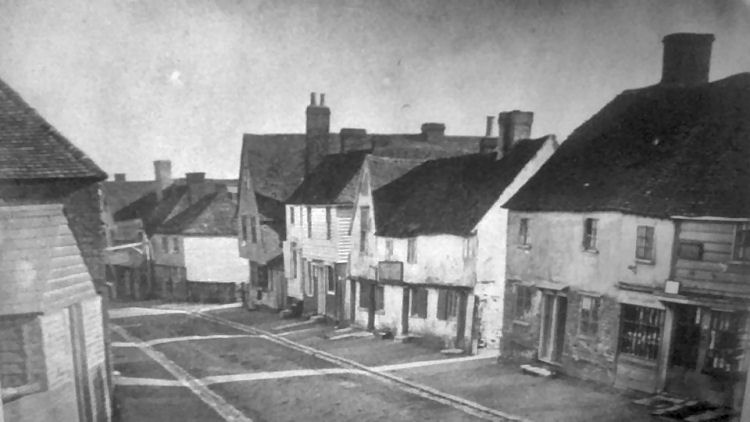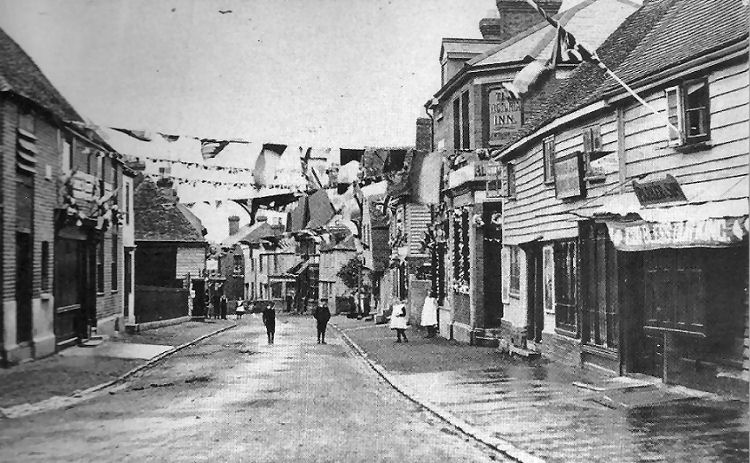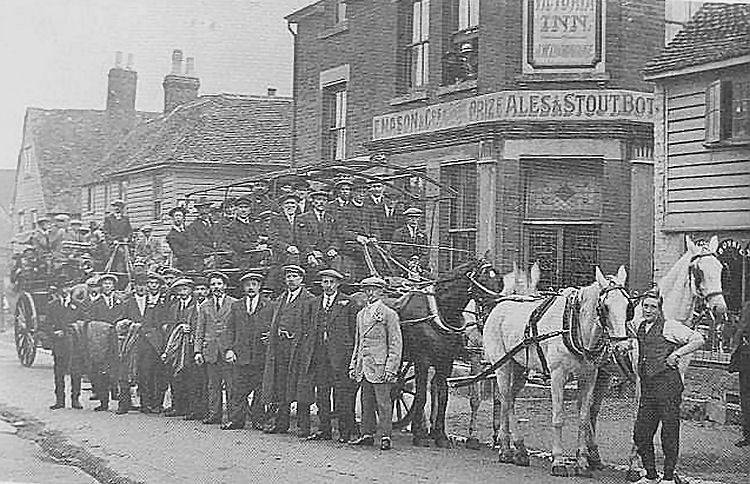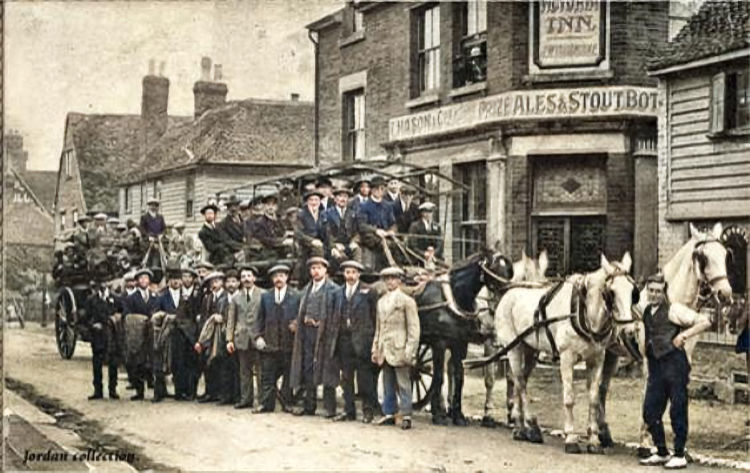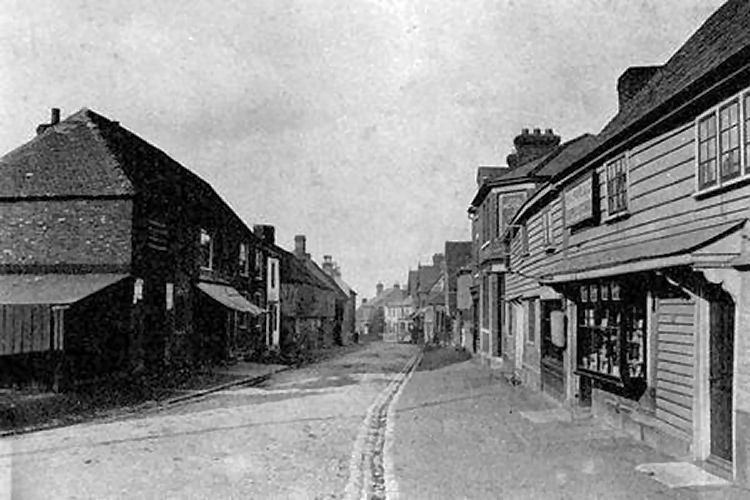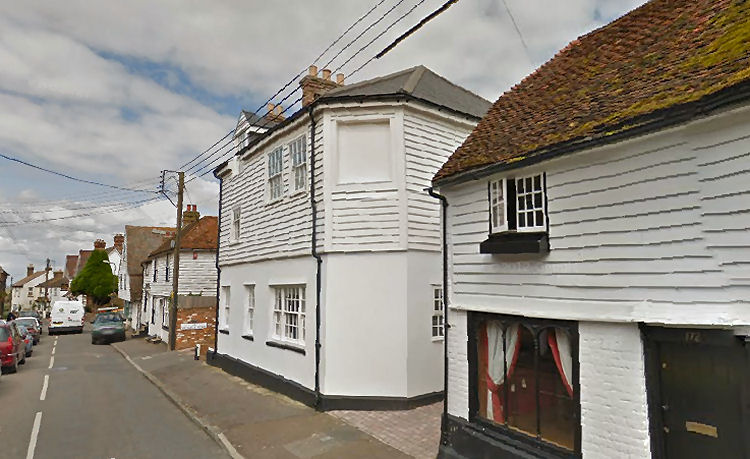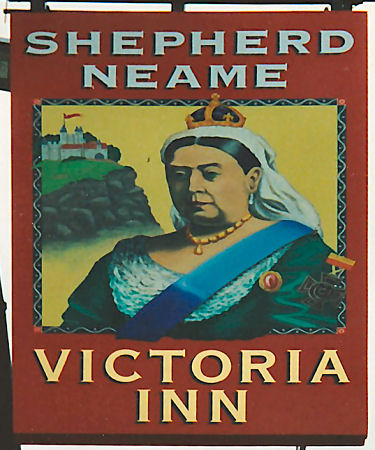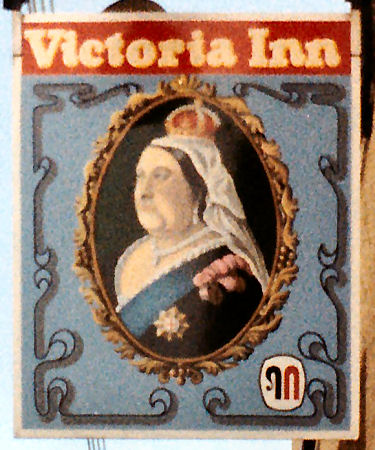|
The following information has been taken from
http://www.cliffehistory.co.uk/pubs.html It is said that
the "Victory" was so named to celebrate Britain's successful outcome in
the Crimean War in 1856, however it also suggested that the reason may
have been Britain's victory over Napoleon and the French.
The "Victory" beerhouse lay between Cliffe's oldest drinking establishments,
the "Black Bull" and the "Six
Bells," in the then Cliffe High Street. As Cliffe's population
increased due to the coming of the cement industry so did the need for
accommodation and another place to relax and recuperate from the toils
of labour.
The "Victory" began life as a small wooden building which
was re-built in brick and renamed sometime between 1871 and 1877.
On the right hand side of the beer-house was a small grocery store and to
the rear lay a coal-yard - both were under the control of the Thorndike
family who ran the beer-house.
The Thorndike family were highly
respected in the village (and by the brewery too) not only due to them
being related to many of Cliffe's merchant families but their hard
working attitude, sense of fairness and support for the village.
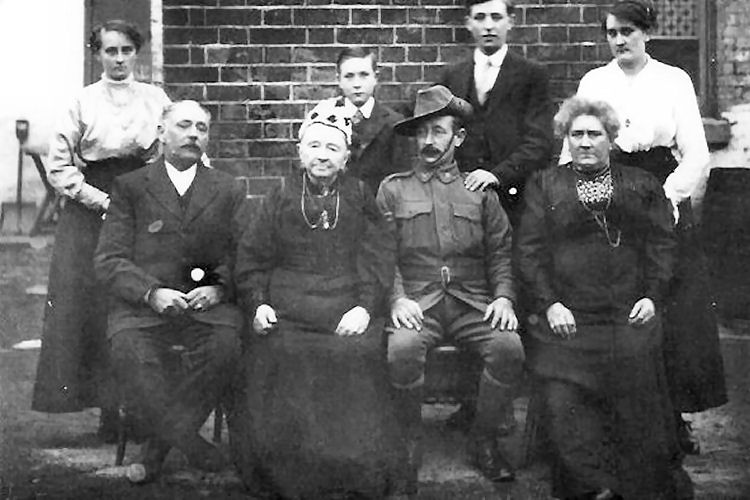
The Thorndike Family pictured in the "Victoria Inn," 1918.
Back (L to R): Laura Thorndike, Frank Thorndike Jnr, Rowland Thorndike & Lillian
Thorndike. Front (L to R): Thomas Thorndike, Anne Waters Thorndike,
Frank Thorndike & Laura Louisa Thorndike.
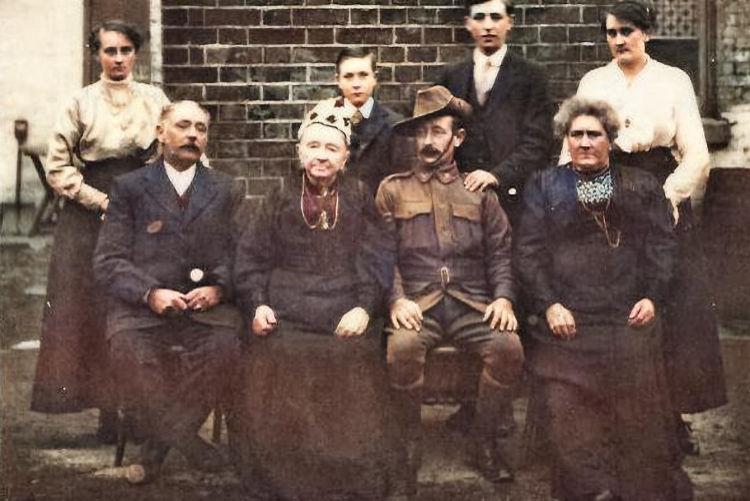
The "Victoria's" yard
was surfaced, like most off-road areas, with cinders from the fires
which, in dry weather, spread dust up your legs as it crunched underfoot
and in very wet weather was best avoided.
Entering the "Victoria Inn," by the 'Jug & Bottle' bar (off-licence today)
you would be faced with a room that was more akin to a corridor whose
walls were heavy wooden panels to separate it from the Saloon bar, which
had it's own entrance by the bakery, and the Public bar which had a
corner entrance, adjacent to the yard, by Parker's Shop.
In the back room, which could be entered from the yard or Public bar
entrance, was were a book keeper would sit and enter sums of money in a
ledger that customers could save in the 'Vic Swearing Club'. It is
likely that the swearing club originated from the practice of placing a
swear box on the bar to which a customer would be expected to place a
fine should he have used a swear word in conversation. The contents of
this box would then either be shared out or used for charitable
activities at Christmas.
Above the bars and reached by a flight of stairs was a large room that
stretched from the High Street at the front to the yard at the back. As
you descended the stairs, should you turn right, you would enter the
Public bar through a door which could be locked, turn left and you would
enter the large back room containing two large trestle tables.
For those who recall the "Victoria Inn" in recent times may be amazed by
the number of people that it was able to house.
In 1881 the census returns show the following living at the "Victoria
Inn":
George Thorndike, 46, head
Georga Thorndike, 44, wife
George Thorndike, 19, farm labourer
Thomas Thorndike, 17, farm labourer
Rose Thorndike, 11, scholar
Frank Thorndike, 4
Thomas Thorndike, 22
Thomas McCarthy, 53, lodger, cook
John Blagburn, 57, lodger, bricklayer
Mary Ann Bareden, 27, servant
Henry Worthington, 43, lodger, bricklayer
William Shelon, 30, lodger, cement labourer
William Symonds, 29, lodger, bricklayer
John Day, 29, lodger, bricklayer
William Bridge, 39, lodger, navvy
J. Gibbs, 29, lodger, navvy
Ann Waters Thorndike
|
